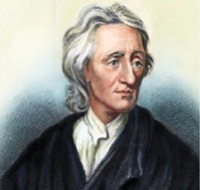By Christopher Massie ——Bio and Archives--October 18, 2010
American Politics, News | CFP Comments | Reader Friendly | Subscribe | Email Us
 One of the “three greatest men the world [has] ever produced”, Thomas Jefferson
One of the “three greatest men the world [has] ever produced”, Thomas Jefferson
“If you analyze it I believe the very heart and soul of (c)onservatism is (l)ibertarianism.”That one statement by Reagan comes with additional qualifications to span 7 pages of text, to include:
“…(c)onservatism is really a misnomer just as (l)iberalism is a misnomer…”Reagan states clearly that so-called (C)onservatives of 1975 would be the (l)iberals if one were viewing the world through the Age of Reason lens. And therein lays a major factor for confusion when referencing the above-linked article as a source of support for TODAY’s (L)ibertarian Party. The editor’s inappropriate use of capital letters leaves one profoundly misguided. In 1975, Reagan (C)onservatives were the Republicans on the far “right” of the political spectrum, therefore requiring capitalizing of the word per rules of proper grammar; and should the editors have followed grammar rules as they apply to the use of (l)iberals as well (in that particular paragraph), well perhaps THIS article may have very well never been quilled. The (C)onservatives of 1975, as Reagan was explaining, were more closely related to the (l)ibertarians as the world knew them during the time of the “Revolution”, as Reagan put it (meaning the Age of Reason; evidenced by his immediate referencing of the Tory Party). Following Reagan’s logic, he considered the (L)iberals (circa 1975) as being comparable to the Tory Party (statists content with their “King”). Note, once again, the improper capitalization in the above-linked article. This one opening paragraph has been the cause of more consternation than perhaps any other of its kind; and is outrageously profound proof warranting intense knowledge of the issues addressed before voters blindly follow a party’s shtick. Reagan, in that one paragraph, addressed conservatism and libertarianism ~ then immediately brushed them over as “misnomers” considering the political landscape in 1975; moving on instead to emphasize the importance of the individual men and women of the given political movements. Why? [1] (c)onservatism is a philosophy, which has altered just as the landscape… [2] (l)ibertarianism is a philosophy, which has altered just as the landscape… [3] People running for office as (C)onservatives are politicians; often [1] joins hand in hand, rarely does [2] as defined by [4]… [4] People running for office as (L)ibertarians are politicians; [1] rarely, if ever, is a factor, and [e] is NEVER a factor… [5] America’s Founding Fathers, John Locke, and Francis Bacon (among many others) were (l)ibertarians of the Age of Reason; escaping tyranny to establish a Republic based on (C)onservative ideals. Considering the changes witnessed by voters of this era ~ in a 21st century where a “moderate Democrat” was voted into office, later to be ultimately recognized as a nation-compromising Socialist ~ perhaps now more than ever Reagan’s call to vet our politicians (particularly those in the (L)ibertarian Party) is a call well worth heeding. After all, as this study clearly outlines, (L)ibertarians are NOT (l)ibertarians.
View Comments
Christopher Massie, BS, CS, Founder & Patriot of Drain The Swamp 2010,
Critical Reading for the Conservative American